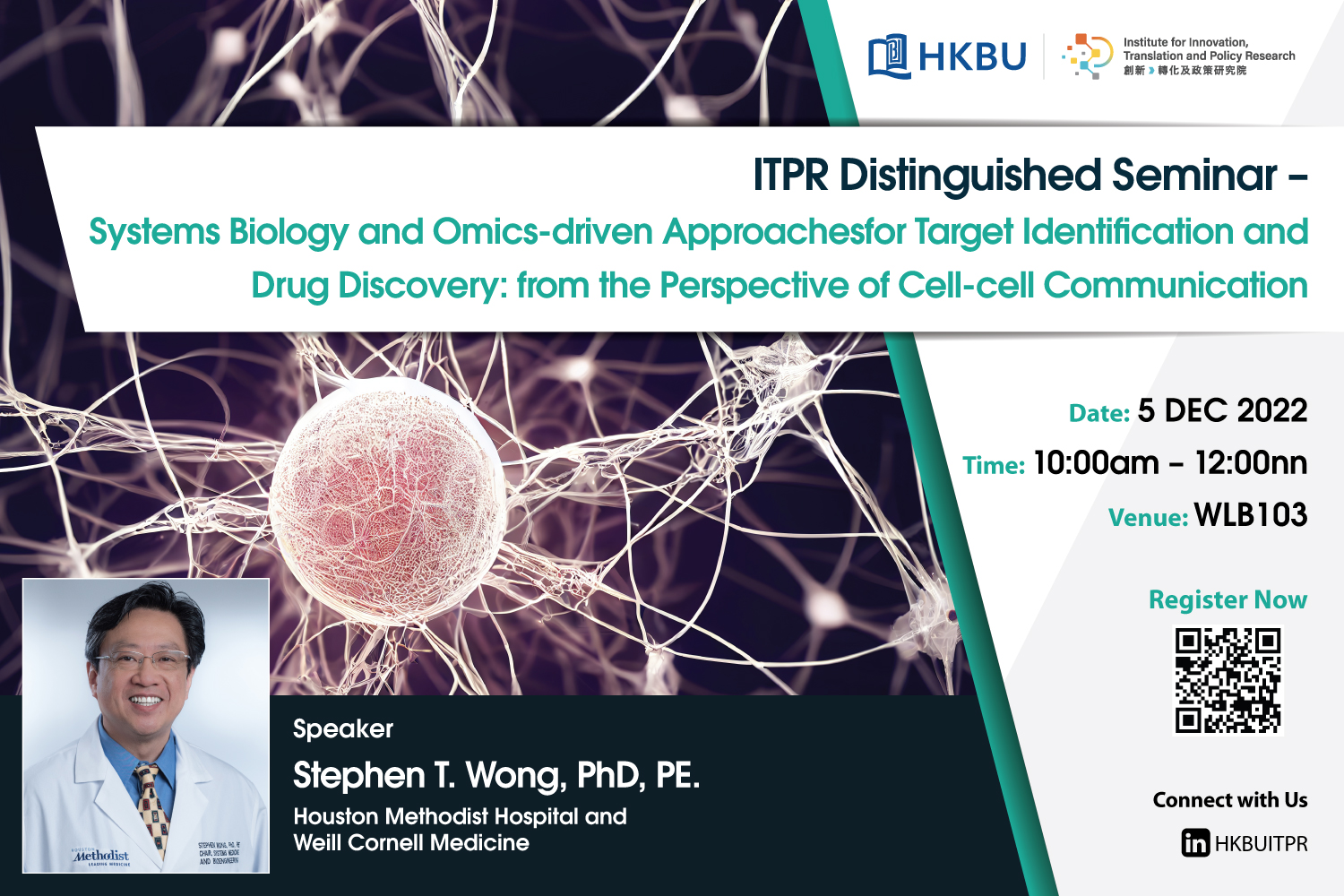Upcoming Event
Systems Biology and Omics-driven Approaches for Target Identification and Drug Discovery: from the Perspective of Cell-cell Communication


Date & Time : 5 December 2022, 10:00am – 12:00nn
Venue : Room WLB 103, The Wing Lung Bank Building for Business Studies, Shaw Campus, HKBU
Registration : Please register online on or before 12:00nn, 2 December 2022 (HKT)
Abstract
During the past decade, bioinformatics-driven approaches have been emerged to be a powerful means for delineating mechanisms of dynamic, complex cell-cell interactions within tissue microenvironment and for discovering novel targets for drug repositioning and development. This talk will present an overview of a multicellular systems biology strategy to understand the underlying cell-cell communication within tumor microenvironment using cell-specific, single cell, and spatial transcriptomics, multiplex imaging, and multi-cellular crosstalk modeling in a comprehensive, unbiased manner. We will provide examples of applications targeting tumor microenvironment of different organs, such as the bones, brain, lungs, and ovaries to illustrate the power of systems biology modeling for hypotheses generation, tumor heterogeneity delineation, and target and drug discovery, as well as ongoing extensions to other diseases such as Alzheimer’s and Idiopathic pulmonary fibrosis.
Speaker
Stephen T.C. Wong, B.E.E.E. (hons), Ph.D. (Computer Science), P.E. (Electrical Engineering), FIEEE, FAIMBE, FAMIA, FAAIA, is John S. Dunn Sr. Presidential Distinguished Chair, founding Chair of Systems Medicine and Bioengineering Department, Director of the T.T. & W.F. Chao Center for BRAIN and Translational Biophotonics Laboratory, Chief of Medical Physics, and Associate Director of Neal Cancer Center, Houston Methodist Hospital. He is a Professor of Radiology, Neurosciences, Pathology and Laboratory Medicine of Cornell University.
Professor Wong has over three decades of experience in academic medicine and tech industries. He was a Professor at UCSF and Harvard University, handling major medical information and imaging system initiatives, design and implementation at UCSF, Harvard Medical School and Brigham and Women’s Hospital. Stephen has served in leadership roles in major technology-driven companies including HP, Bell Labs, Philips Healthcare, and Charles Schwab, where his group produced an electronic trading platform. His laboratory investigates molecular mechanisms of cancer and neurodegeneration for translation to diagnostics and therapeutics. He received senior executive education from Stanford University, MIT, and Columbia University. He worked in Manila, Perth, Canberra, Singapore, Orlando, Tokyo, Amsterdam, San Francisco, Silicon Valley, Boston, and now Houston. He dedicates the second half of his life in solving disease problems.